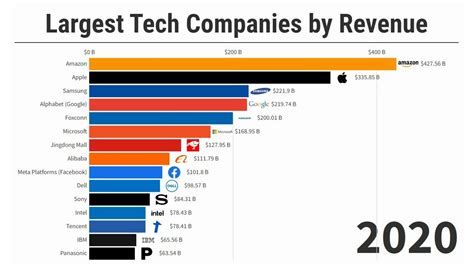The real estate industry has undergone significant transformations in recent years, driven in large part by advancements in technology. Housing technology companies have been at the forefront of this revolution, leveraging innovative solutions to enhance the way we buy, sell, and manage properties. These companies have not only improved the efficiency of transactions but have also expanded access to housing markets, made property management more effective, and enabled more informed decision-making through data analytics.
From startups to established firms, the landscape of housing technology is rich with innovators who are pushing the boundaries of what is possible in the industry. The impact of their work is felt across various sectors, including property listing and matching platforms, financial services, construction, and property management.
Here, we will delve into the world of housing technology, exploring its importance, trends, and highlighting some of the key players in the field.
Why Housing Technology Matters
Housing technology, also known as real estate technology or PropTech, is a broad term that encompasses any technology designed to improve the operations of the housing market. This can range from platforms that facilitate buying and selling, to software that streamlines property management, to innovations in construction that make buildings more sustainable and efficient.
The importance of housing technology cannot be overstated. It has the potential to address some of the most pressing issues in the housing market, such as affordability, accessibility, and sustainability. By providing more efficient and cost-effective solutions, housing technology companies can help make housing more affordable for a wider range of people.
Moreover, housing technology plays a crucial role in the broader economy. The real estate sector is one of the largest contributors to GDP in many countries, and technological innovations in this area can have far-reaching economic benefits.
Trends in Housing Technology
Several trends are currently shaping the landscape of housing technology:
-
Digitalization and Online Platforms: The shift towards online platforms for property listing, matching, and transactions is one of the most significant trends. This has made the housing market more accessible and has reduced the barriers to entry for new players.
-
Artificial Intelligence (AI) and Machine Learning (ML): The integration of AI and ML in housing technology is enhancing the efficiency of property management, improving the accuracy of property valuations, and enabling more personalized services for consumers.
-
Sustainability and Green Building: There is a growing focus on sustainability in housing technology, with innovations aimed at reducing the environmental impact of buildings and promoting green construction practices.
-
Financing and Investment: Housing technology is also transforming the way properties are financed and invested in, with platforms emerging that facilitate crowdfunding and other alternative forms of investment.

100 Top Housing Technology Companies
Given the breadth and depth of innovation in the housing technology sector, it's challenging to narrow down the list to just 100 companies. However, here are some of the most notable players in the field, categorized by their focus area:
Property Listing and Matching Platforms
- Zillow: Known for its extensive property listings and valuation tools.
- Redfin: Offers real estate brokerage services combined with online property listings.
- Realtor.com: A comprehensive property listing platform that provides detailed property information.
Property Management Software
- AppFolio: Offers software solutions for property management, including accounting and leasing tools.
- Yardi: Provides comprehensive property management software for residential and commercial properties.
- RealPage: Leverages technology to enhance property management operations.
Financial Services and Investment Platforms
- Roofstock: Enables investors to buy and sell single-family rental homes online.
- Fundrise: A real estate investment platform that offers diversified investment portfolios.
- Rich Uncles: Allows individuals to invest in real estate development projects.
Construction and Building Technology
- Katerra: Focuses on transforming the construction industry through innovative design and manufacturing processes.
- Plant Prefab: Offers prefabricated homes that are sustainable and affordable.
- Modulus: Develops building technologies that enhance efficiency and sustainability.
and 87 other notable companies
- Homelight
- OpenDoor
- Homebuyer
- Offerpad
- Knock
- Ribbon
- Bungalo
- Hubzu
- Xome
- Movoto
- Homes.com
- Rently
- HappyCo
- Plunk
- Patch of Land
- RealtyMogul
- PeerStreet
- Doma
- Snapdocs
- SimpleNexus
- LoanBeam
- HouseCanary
- HomeLight
- Redwood Trust
- Notarize
- JetClosing
- Endpoint
- Qualia
- Propy
- AssetsMap
- EasyKnock
- Realtor.com
- Compass
- Divvy Homes
- Flyhomes
- Homeward
- Ribbon
- Rex
- Orchard
- Sundae
- Homie
- Landis
- Homelight
- OpenDoor
- Knock
- Ribbon
- Bungalo
- Hubzu
- Xome
- Movoto
- Homes.com
- Homefacts
- Homesnap
- Rently
- Yardi Breeze
- Buildium
- AppFolio
- RealPage
- Entrata
- Doorstead
- Keyrenter
- PointCentral
- LimbleCMMS
- Cozy
- RentSync
- TenantCloud
- RentCafe
- RentManager
- Property Matrix
- Rentlytics
- YieldStar
- RentPush
- HousingAnywhere
- Flat
- Domuso
- Hunty






What is Housing Technology?
+Housing technology, or PropTech, refers to the use of technology to improve the operations of the housing market. This includes property listing and matching platforms, property management software, financial services and investment platforms, construction and building technology, and more.
How is Housing Technology Changing the Real Estate Industry?
+Housing technology is transforming the real estate industry by making it more accessible, efficient, and sustainable. It is also providing new investment opportunities and improving property management operations.
What are Some of the Key Trends in Housing Technology?
+Some of the key trends in housing technology include digitalization and online platforms, artificial intelligence and machine learning, sustainability and green building, and new financing and investment models.
As we look to the future, it's clear that housing technology will continue to play a crucial role in shaping the real estate industry. Whether it's through innovative property listing platforms, cutting-edge construction technologies, or more efficient property management software, the impact of housing technology will be felt for years to come.
